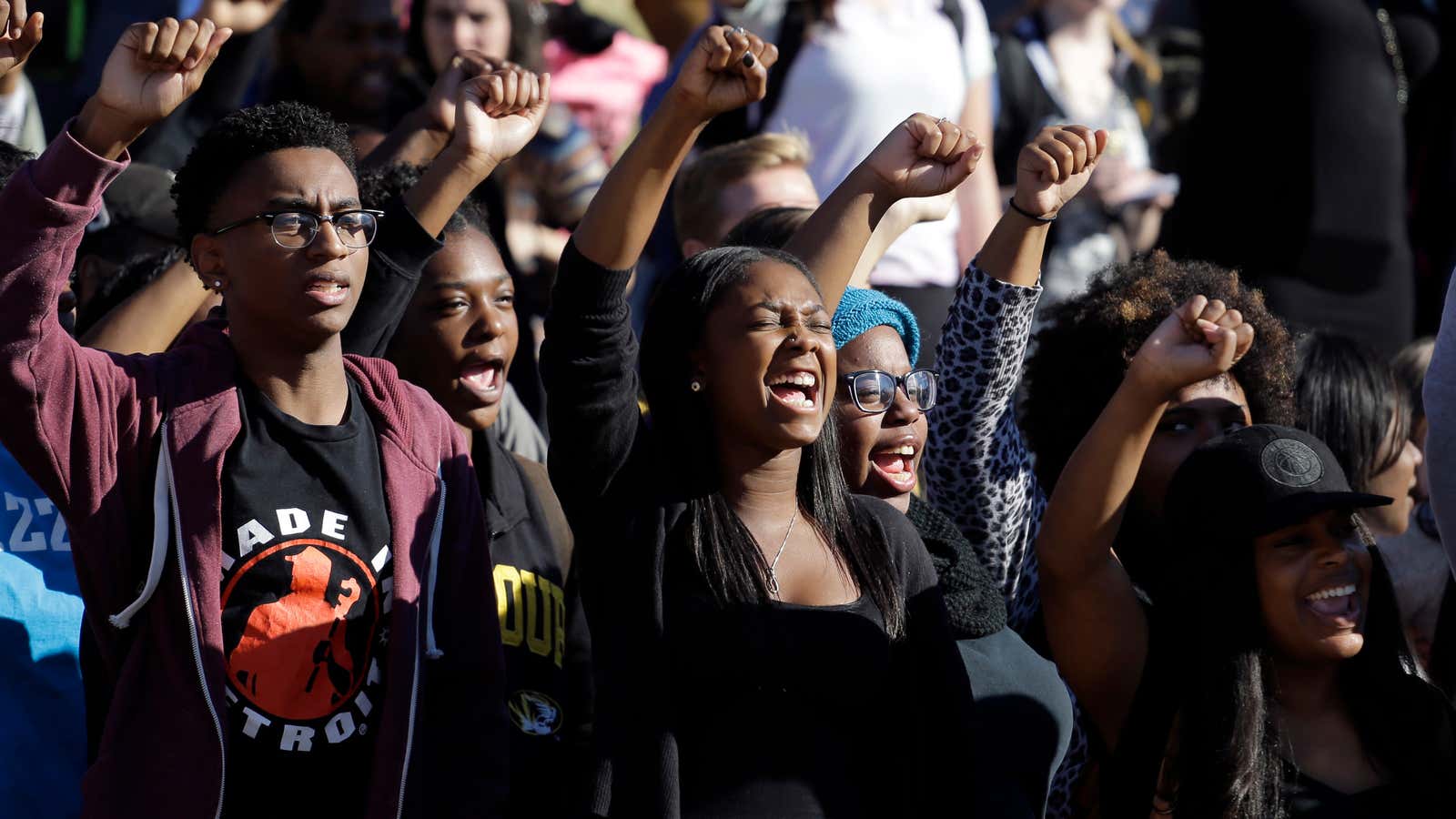A quieter campus greets students at the University of Missouri beginning the new semester this week. The university is starting the academic year with its smallest incoming class since 1999.
With 33,200 students this fall, the school’s overall enrollment has fallen by more than 2,000. University officials say the drop in enrollment can be attributed partly to demographic shifts (a drop in high-school graduates, plus increased competition amongst colleges for Midwest students) and a losing streak in its athletics, but there’s another reason: the events of fall 2015.
Two years ago, the University of Missouri—or Mizzou, as it’s often known—underwent a massive shakeup when students led several weeks of protests accusing administrators of race-related disrespect or neglect. Some went on hunger strikes; 30 black members of the football team refused to play in further games until certain demands were addressed. The school’s president, Tim Wolfe, ended up resigning in November 2015, after students accused him of not speaking up about racially charged attacks and seemingly blaming students for their own oppression.
But what was a win for the student activists was also a deep outrage to alumni, donors, and sports fans of the university, who were dismayed to see the administration cave into students’ demands, such as by agreeing to double the number of minority faculty members.
The Wall Street Journal has now obtained (paywall) “thousands of pages of emails” under the state’s Freedom of Information Act showing that “many alumni and other supporters were disgusted with administrators’ feeble response to the disruptions.” It’s clear that the unhappiness has trickled into the school’s admissions, as well; first-year enrollment has slipped 35% since 2015.
“At breakfast this morning, my wife and I agreed that MU is NOT a school we would even consider for our three children,” one 1978 alum wrote to the school, according to the Journal. It “has devolved into the Berkeley of the Midwest.”
Mizzou is by far not the only US university to have been shaken up by race-related activism in recent years—schools like Yale and Harvard were affected, too—but as a public university, it is one of the few who must produce records documenting the effects. Because universities are responsible to a number of groups outside of the student body at any given time, the cost of campus activism is resoundingly not cheap. Beyond physical security and cleanup of protests, there’s the need for communications task-forces, alumni outreach specialists, policy teams, and more. Mizzou’s enrollment numbers are a testament to how long-lasting the damage can be.




